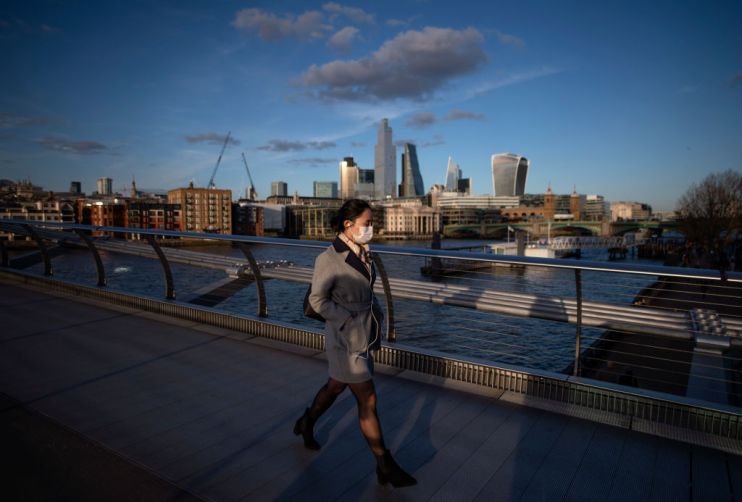FTSE 100 edges into the green as Wall Street opens higher on tech bounce

The FTSE 100 edged into the green as US stocks opened higher as a bounce in tech stocks overshadowed the high number of jobless claims.
London’s blue-chip index climbed 0.19 per cent after spending most of the session in the red in anticipation of the ECB’s rates decision. The FTSE 250 of smaller-cap firms rose 0.59 per cent.
In Europe, the continent-wide Stoxx 600 fell 0.19 per cent. France’s CAC 40 rose 0.12 per cent, while Germany’s Dax traded up 0.27 per cent.
Global stock markets fell sharply last week as nerves finally got to investors after US markets – driven by tech giants – hit new all-time highs.
On Tuesday, when Wall Street reopened after Labor Day, tech stocks took a battering. Apple shed seven per cent but Tesla plunged an enormous 22 per cent.
However, investors regained their poise yesterday, and demand for tech stocks continued into Thursday’s session.
“Markets went from breaking down to recovery yesterday and recouped much of their losses from the previous day’s selloff. US tech outperformed,” said Jim Reid of Deutsche Bank.
Morrisons leads FTSE 100 fallers
The FTSE’s falls had not been as pronounced as those in the US, for two main reasons.
One is that it lacks the big tech stocks that proved to be volatile. And the other is that a falling pound – driven by Brexit worries – had supported the market. It makes the overseas earnings of multinationals worth more in relative terms.
The pound was up 0.2 per cent this morning to $1.302, however. That was despite the UK yesterday confirming it would override certain parts of the withdrawal agreement it struck with the EU, breaking international law.
Morrisons was the biggest faller after its first-half profit was weighed down by Covid costs. Its shares fell 4.36 per cent by the afternoon.
“The economic climate is iffy at best and Morrison is preparing for a potential shift in consumer behaviour,” said Sophie Lund-Yates, equity analyst at Hargreaves Lansdown.
Some of the biggest FTSE 100 multinationals were hit by the rise in the pound. Miners BHP and Anglo American and minerals group Antofogasta all lost around two per cent. British Airways and British American Tobacco also fell.
ECB decision sends Euro rocketing
Investors looking for firm action from the European Central Bank (ECB) were left disappointed after it left interest rates at their current record-low level.
Most investors had anticipated this outcome so were looking for discussion surrounding the rising euro. The ECB said it will monitor the FX rate going forward but targeting a particular exchange rate is not within their mandate.
“So, traders now know that the ECB is merely “monitoring carefully” the exchange rate and how this will impact price levels”, said Fawad Razaqzada, market analyst at Think Markets. “Thus, what we could see going forward is further gains for the euro as trades probably try and milk the bullish trend as much as possible.”
“By resisting calls to cut interest rates deeper into negative territory, the Bank has consolidated the appeal of the Euro to global investors”, said Ulas Akincilar, head of trading at online trading platform Infinox. “It is now walking a tight-rope of currency appreciation, as it dare not let the Euro rise too high for fear of hampering the recovery of export-dependent economies like Germany.”
Wall Street opens higher on tech bounce
The FTSE 100 was buoyed by a strong start to the US session as demand for tech stocks overshadowed disappointing jobless claims figures.
The Dow Jones rose 0.54 per cent while the benchmark S&P 500 climbed 0.47 per cent.
The tech-heavy Nasdaq jumped 0.75 per cent after posting its steepest rise in four months yesterday, gaining 2.7 per cent. Facebook are up 0.23 per cent while Google-owner Alphabet rose 0.91 per cent.
It comes after new figures from the US Labor Department showed the number of people filing for unemployment benefits continues to rise.
Last week there were 884,000 initial claims, unchanged from the previous week’s revised level.
“The numbers are not so bad to cause any real concern, but do show that the economy is not on a continuous upward trend, which is unsurprising”, said Neil Birrell, chief investment officer at Premier Milton.
“The scarring of the economy is clear and is going to last for some time. In markets, in the very short term, we will probably see defensive assets hold firm on the back of this.”